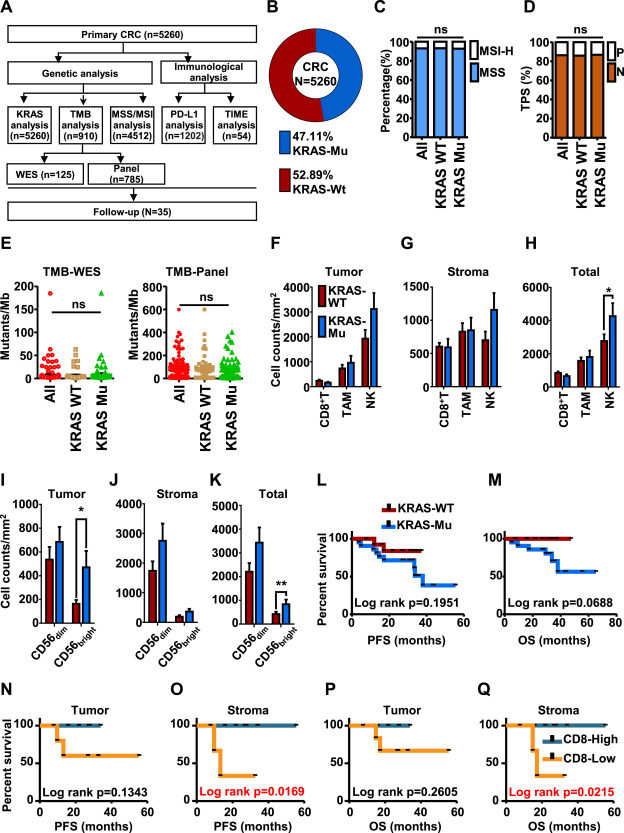
Genetic and immunologic characteristics of colorectal cancer patients with KRAS mutations and predictive significance of tumor immune microenvironment in adjuvant chemotherapy


Colorectal cancer (CRC) is one of the most common cancers around the world, and it is one of the leading causes of cancer-related death.1 Although anti-EGFR therapy and immune checkpoint inhibitor (ICI) therapy are becoming more and more important for colorectal therapy, however, clinical outcomes of current treatments for metastatic CRC, especially with ICIs, have been shown to be affected by the status of KRAS. Therefore, KRAS mutation status detection has become a very important diagnostic factor for managing metastatic CRC patients. There have also been a lot of immunotherapy explorations in CRC, such as clinical trials of pembrolizumab and nivolumab. The clinical trial Keynote 177 is a groundbreaking research in CRC, which evaluated the efficacy of programmed death 1 blockade as first-line therapy for MSI-H-dMMR advanced or metastatic CRC. However, the results of subgroups revealed that immunotherapy did not benefit more than chemotherapy in patients with KRAS mutation.2 While the mechanism behind these clinical results keeps unclear, herein, we comprehensively analyzed the genetic and immunologic characteristics of CRC with KRAS mutation, and try to explore the mechanisms and potential predictive biomarkers, especially from the prospect of tumor immune microenvironment (TIME).
